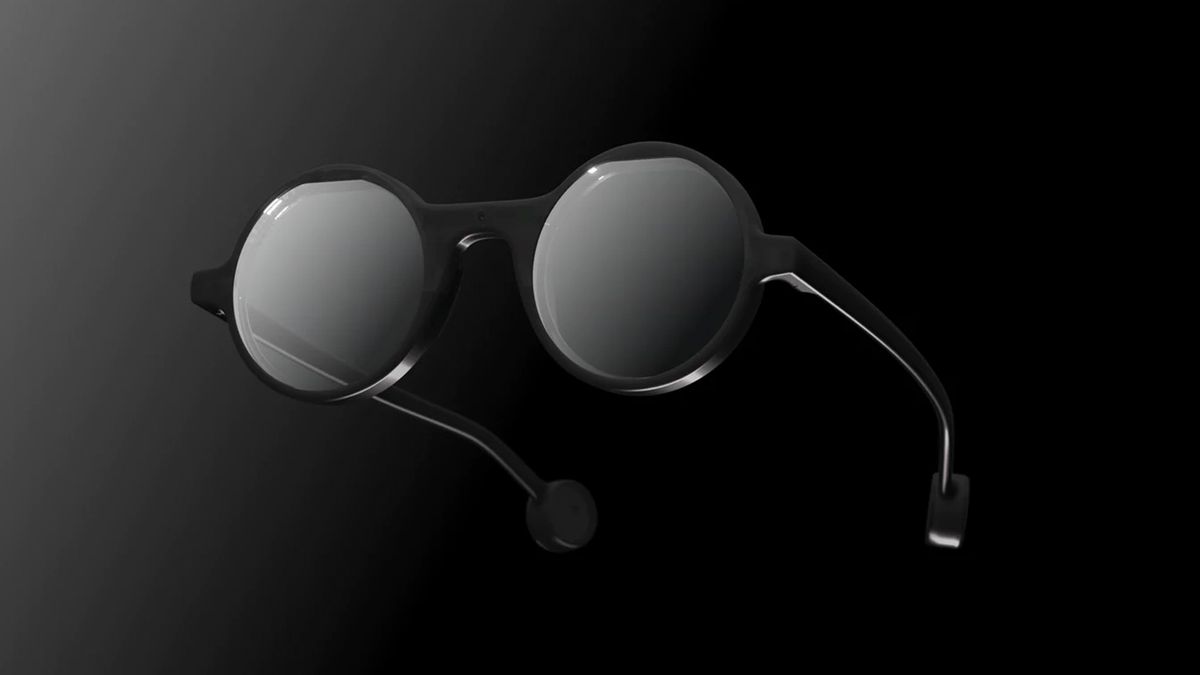It was only a matter of time before someone added generative AI to an AR headset and taking the plunge is start-up company Brilliant Labs with their recently revealed Frame smart glasses.
Looking like a pair of Where’s Waldo glasses (or Where’s Wally to our UK readers), the Frame houses a multimodal digital assistant called Noa. It consists of multiple AI models from other brands working together in unison to help users learn about the world around them. These lessons can be done just by looking at something and then issuing a command. Let’s say you want to know more about the nutritional value of a raspberry. Thanks to OpenAI tech, you can command Noa to perform a “visual analysis” of the subject. The read-out appears on the outer AR lens. Additionally, it can offer real-time language translation via Whisper AI.
The Frame can also search the internet via its Perplexity AI model. Search results will even provide price tags for potential purchases. In a recent VentureBeat article, Brilliant Labs claims Noa can provide instantaneous price checks for clothes just by scanning the piece, or fish out home listings for new houses on the market. All you have to do is look at the house in question. It can even generate images on the fly through Stable Diffusion, according to ZDNET.
Evolving assistant
Going back to VentureBeat, their report offers a deeper insight into how Noa works.
The digital assistant is always on, constantly taking in information from its environment. And it’ll apparently “adopt a unique personality” over time. The publication explains that upon activating for the first time, Noa appears as an “egg” on the display. Owners will have to answer a series of questions, and upon finishing, the egg hatches into a character avatar whose personality reflects the user. As the Frame is used, Noa analyzes the interactions between it and the user, evolving to become better at tackling tasks.
An exploded view of the Frame can be found on Brilliant Labs’ official website providing interesting insight into how the tech works. On-screen content is projected by a micro-OLED onto a “geometric prism” in the lens. 9To5Google points out this is reminiscent of how Google Glass worked. On the nose bridge is the Frame’s camera sitting on a PCBA (printed circuit board assembly).
At the end of the stems, you have the batteries inside two big hubs. Brilliant Labs states the frames can last a whole day, and to charge them, you’ll have to plug in the Mister Power dongle, inadvertently turning the glasses into a high-tech Groucho Marx impersonation.

Availability
Currently open for pre-order, the Frame will run you $350 a pair. It’ll be available in three colors: Smokey Black, Cool Gray, and the transparent H20. You can opt for prescription lenses. Doing so will bump the price tag to $448.There’s a chance Brilliant Labs won’t have your exact prescription. They recommend to instead select the option that closely matches your actual prescription. Shipping is free and the first batch rolls out April 15.
It appears all of the AI features are subject to a daily usage cap. Brilliant Labs has plans to launch a subscription service lifting the limit. We reached out to the company for clarification and asked several other questions like exactly how does the Frame receive input? This story will be updated at a later time.
Until then, check out TechRadar’s list of the best VR headsets for 2024.





